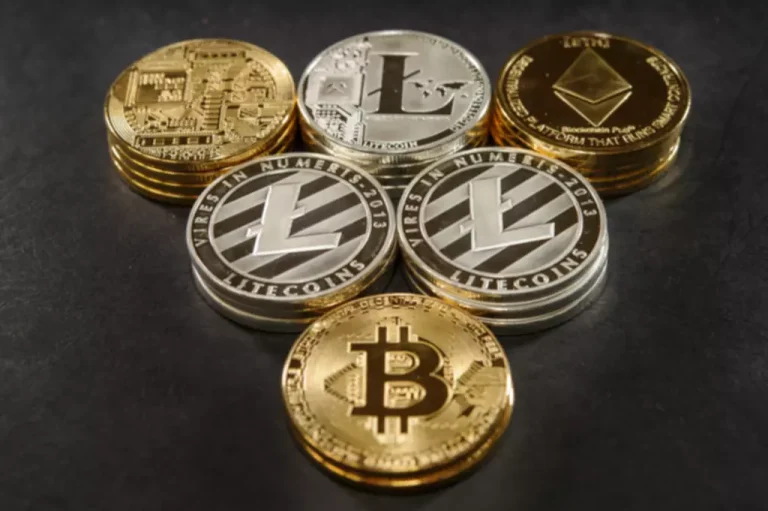Cryptocurrencies can be utilized for numerous purposes, including on-line kyc meaning crypto funds, investments, remittances, and decentralised finance. While they provide benefits corresponding to decrease transaction charges, financial sovereignty, and world accessibility, additionally they face challenges like regulatory uncertainty, worth volatility, and scalability points. Despite these challenges, cryptocurrencies have turn out to be a transformative force in the global financial system, driving innovation and difficult conventional financial systems.

Are You A Cash Transmitter Under Fincen Regulations?
It requires monetary institutions to gather and transmit personal information about the originator and beneficiary of a transaction. The FATF extended https://www.xcritical.in/ this rule to include cryptocurrency exchanges, requiring them to collect figuring out information for transactions above a sure threshold (usually $1,000 or more). In this article, we’ll discover how AML rules apply to crypto, the risks they handle, and the necessary thing instruments companies can leverage to ensure compliance. Effective KYC is essential if crypto companies are to adjust to different AML regulatory necessities, together with the Travel Rule and suspicious exercise reporting. These processes can be streamlined by way of the use of identity verification and KYC software program for crypto companies.
Register On Your Month-to-month Asia Legal Updates From Conventus Law

Centralized cryptocurrency exchanges (CEX) and decentralized cryptocurrency exchanges (DEX) are one of many primary entry points for folks into the crypto and web3 area. People use them to buy virtual belongings, change virtual assets, commerce cryptocurrencies, and carry out Digital asset many different kinds of transactions. A successful CEX or a DEX project ought to adjust to all of the monetary and crypto regulations to be a spot where individuals can safely perform their transactions and keep their assets secure. With the growing variety of KYC/AML tools in the marketplace, choosing the proper one on your crypto enterprise may be difficult.

Instruments And Techniques For Aml Compliance In Crypto
By sharing relevant information and insights, crypto exchanges can assist in investigations and contribute to the broader effort of combating financial crimes. This collaboration can even support the development of industry-specific pointers and best practices, ensuring that AML policies stay efficient and up to date. Regular communication and coordination with regulatory authorities help crypto exchanges keep compliant with the latest AML laws. Customer Due Diligence (CDD) and Know Your Customer (KYC) procedures function the foundation for effective AML insurance policies in crypto exchanges. These procedures involve verifying the identification of customers and assessing their risk profiles.
- And individuals might find themselves personally uncovered to civil or felony penalties — time in a federal prison is a real possibility.
- The enterprise you’re trading with must ensure you’re not using your crypto for the mistaken reasons.
- One area of explicit focus is stablecoins, that are digital currencies pegged to steady property, such as the US dollar or the British pound.
- Its market capitalization and secure worth make it an ideal choice for money launderers in search of to transform illicit funds into respectable foreign money.
By adhering to those AML laws, crypto exchanges may help fight illicit actions within the crypto trade and contribute to a more secure and trusted ecosystem. Implementing effective AML compliance programs, corresponding to designing risk-based policies and procedures, providing employees training, and conducting impartial audits, is significant for maintaining regulatory compliance. To be taught more about one of the best practices for AML compliance within the cryptocurrency business, check with our article on cryptocurrency AML finest practices. In November 2024, 18 states and a blockchain business affiliation filed a lawsuit towards the SEC in the Eastern District of Kentucky, difficult the company’s authority to manage digital asset trading platforms as securities exchanges. As we start 2025, the authorized landscape surrounding digital assets stands at a important inflection level, with a quantity of watershed cases poised to reshape how these belongings shall be governed, traded, and regulated within the United States. The convergence of these cases — spanning securities legislation, administrative process and federalism — presents opportunities to make clear how conventional legal frameworks apply to digital belongings.
The Central Bank of Brazil (BCB) and the Securities and Exchange Commission (CVM) will oversee its implementation. Japan is considering lighter laws for cryptocurrency intermediaries that are not crypto exchanges. The Financial Services Agency (FSA) just lately proposed this to the Financial System Council, following Japan’s early cryptocurrency regulation after the Mt. Gox hack. Currently, crypto intermediaries similar to apps or wallets that connect customers to exchanges must register as crypto asset trade service providers (CAESPs), however many don’t handle customer funds directly. The Financial Crimes Enforcement Network (FinCEN) considers cryptocurrency exchanges to be cash transmitters, or Money Services Businesses (MSBs), and, due to this fact, covered monetary institutions under the Bank Secrecy Act. Currently, federal regulation and regulation does not require MSBs (i.e., cryptocurrency exchanges) to perform an AML Risk Assessment.
By enhancing staff consciousness and information, exchanges can create a culture of compliance and empower staff to identify and reply to potential AML dangers effectively. Ensuring that staff members are well-informed and educated about AML compliance is crucial in maintaining an efficient program. Crypto exchanges should provide common coaching to their staff on AML rules, the exchange’s AML insurance policies and procedures, and the latest tendencies and typologies in money laundering and terrorist financing. Crypto exchanges are required to implement sturdy CDD and KYC measures to guarantee that they’ve a complete understanding of their customers.
Digital asset corporations should think about the volumes and values of digital asset inflows from these higher-risk counterparties to assess exposure. Law enforcement can’t conduct an investigation or seize assets against a single central location or entity (administrator) — though authorities can goal individual exchangers to retrieve client information that the exchanger could gather. Thus, virtual forex transactions provide a degree of anonymity that is not potential with conventional credit and debit cards or older on-line cost methods. The Markets-in Crypto Assets regulation set to be adopted in the EU in 2023 (and expected to come back into impact in 2024) may even tighten the regulatory strain for centralized exchanges. In the present draft of the laws, crypto exchanges will turn into equal to conventional broker and exchange activity and can bear full accountability for any tokens listed on it that aren’t issued through a dedicated legal entity. This is a extra refined regulation for exchanges and wallets introduced recently in certain jurisdictions to create particular regimes for crypto projects.
The BSA’s AML policy mandate is the cornerstone of compliance, however it isn’t the one coverage a cryptocurrency change enterprise needs. Vital to each legal compliance and risk administration is a set of related insurance policies to guide the business’s actions in a variety of situations and a compliance officer to implement them. From that small example, imagine the questions presented when an individual funds the account and initiates a transaction. And for every regulation, rule, or regulation every cryptocurrency change categorized as a money transmitter by FinCEN must have a written policy. The importance of AML compliance for crypto exchanges stems from the rising rules imposed by governments worldwide. Countries like China and South Korea have strict restrictions on mining and crypto exchanges, while Japan and Switzerland allow their citizens to make use of crypto exchanges for trading.
At its most elementary level, anti-money laundering compliance comes right down to safety for each enterprise and investor. If money laundering and terrorist financing run rampant, governance should crack down even more durable, probably limiting the method forward for blockchain expertise and pushing it underground. For instance, AMLBot might help crypto companies develop their AML procedures and training, implement KYC processes to confirm person info, and observe the source and destinations of crypto transactions. The excellent news for cryptocurrency companies is that technology makes compiling with AML governance easier.
By sharing information and insights, crypto exchanges can contribute to the development of efficient AML frameworks and work towards a more secure and compliant business. To overcome this challenge, crypto exchanges have to implement efficient customer due diligence (CDD) procedures. This consists of conducting thorough know your buyer (KYC) checks to confirm the identification of their prospects.
This article examines 5 circumstances which will define the future of digital asset regulation within the United States and sets out the problems at stake in those instances. This piece proposes quick, simply adopted changes the SEC ought to take to create fit-for-purpose laws without sacrificing innovation or crucial investor protections. While laws is critical to provide adequate regulatory readability concerning crypto asset classification and secondary market oversight, these steps would supply instant profit to the market. The Howey take a look at is a U.S. authorized precept for figuring out whether a monetary association qualifies as an investment contract and is subject to regulatory requirements. The Howey check has become a cornerstone in the SEC’s assessment of varied monetary devices and arrangements, including cryptocurrencies and preliminary coin offerings (ICOs).
